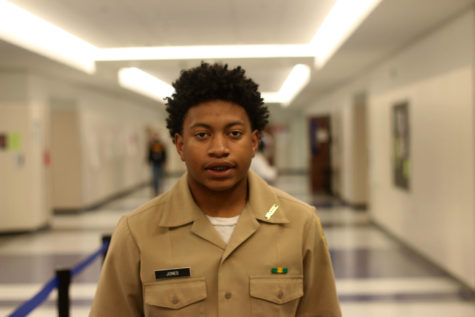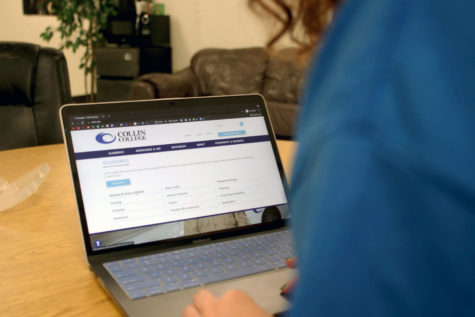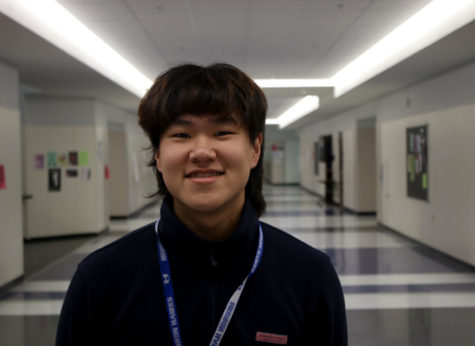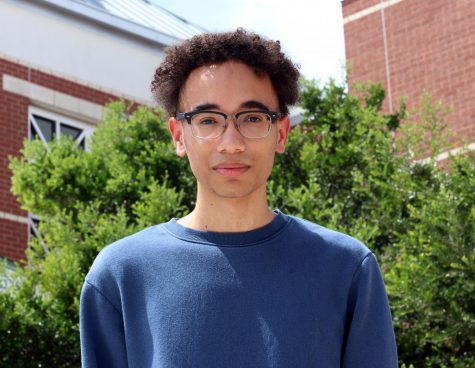Non-traditional Career Paths
Three seniors discuss motivations behind pursuing different routes after high school
With hundreds of thousands of seniors submitting their college application, they’ll soon graduate and begin a new chapter in their lives. This often encompasses following the traditional path of higher education, but for many students, they’ll explore a path that doesn’t involve or immediately involve a four-year university. To explore some of these, “The Hawk Eye” reached out to three seniors pursuing paths not immediately involving universities.
Military:
For senior Elijah Jones, who comes from a family of military members, enlisting and following in their footsteps was an easy decision.
“My grandad served in the Army for 36 years, and my dad served in the Army for 25 years,” Jones said. “The fact that they both served in the military inspired me to follow their footsteps and go specifically into the Army.”

Jones is currently a member of NJROTC and said being a member has both guided him and further encouraged his passion for enlisting in the military.
“I wanted to join NJROTC last year, but then COVID-19 [prevented me from doing so],” Jones said. “I’m glad I was able to join this year and being in it really helps. I’m currently a seaman recruit, which is basically ‘level 1,’ though I’m studying to rank up.”
The first step to enlisting in the military is taking the ASVAB, a multiple-choice test used by the military to help determine which military career an individual is suited to. Then, interested recruits must both pass a physical examination and meet with a counselor to determine their path forward. One important distinction to make is that joining the military doesn’t just refer to becoming a soldier but extends to numerous non-combatant roles.
Jones is currently planning on attending college either before or after his enlistment. He said enlisting in the military isn’t for everyone, but has benefits which set interested students up for success, such as the military’s offer to pay up to 100% of future educational costs as part of the G.I. bill.
“Joining the military is an easy way to be successful,” Jones said. “If you’re interested, I recommend people join because of the numerous benefits. Even if they are not interested in making a career out of it, people who serve can still get many benefits.”
Community College:

Community colleges are often negatively stereotyped as institutions which provide a lower-quality education, but for senior Allison Smith, this stereotype couldn’t be further from the truth.
“I’m not sure about [everything], but my current plan is to go to community college to get all of my basics done,” Smith said. “This way it’s more affordable to get the required core classes that have nothing to do with my major out of the way.”
In a time when the price of traditional four-year colleges continues to rise, many students are forced to take out loans to pay student loan debt which often follows them for decades. Smith said community colleges offer an alternative to this and are a good investment simply because of the affordable education which still equips students with the knowledge and skills necessary in the real world.
“I think more people should consider [community college] because it’s cheaper,” Smith said. “Obviously, if you get scholarships or have your heart set on [a university], go for it, but otherwise I believe going to community college first has many benefits.”
Community colleges often have “pre-admission partnerships” with other four-year universities, which offer benefits such as admission to other four-year universities after two years if requirements are met. Collin College, for example, has agreements with A&M, UNT, SMU and numerous other four-year universities. Smith said she plans to take advantage of this and transfer to a four-year university after community college.
“I’m currently debating between Collin College and Brookhaven,” Smith said. “Both offer wonderful classes, so I’m trying to determine which one offers more for me. After [two years], I plan to transfer to UNT because of their phenomenal education program.”
Smith said she recommends people who are undecided on majors consider giving community college a try.
“If you aren’t set on what you want to major in, why waste money at a big university?” Smith said. “Community college gives time for undecided [students] and often has many programs that could spike your interest.”
Trade Schools (Mechanic):
As a child, senior Sion Park enjoyed all aspects of cars — beyond just the design. It wasn’t until he entered high school that he realized this passion could translate into a career as a mechanic.

“I loved cars as a kid,” Park said. “Not just the looks or the speed, but also the history and massive community behind it. I’ve always wanted to do something in relation to cars, but I never really knew how to get a footing in that industry.”
Park said taking classes at the career center allow him to expand his passion and begin seriously considering a career in mechanics.
“I’m currently involved in ‘Automotive Technology 2’ at the TECC-E (Technology, Exploration, & Career Center East) and took ‘Automotive Technology 1’ my junior year,” Park said. “I really love the classes because [they] give me a break to get out of the typical classroom and use my hands to do something I love.”
The main way to go into skilled trade is to enroll in a trade school, also known as a vocational school. Instead of covering general education courses like colleges do, trade schools solely focus on the skills necessary for someone’s intended major, which is why they only range from a few months to two years.
Park said he intends to pursue this career path, enrolling in trade school in order to become a mechanic.
“I currently plan on going to trade school,” Park said. “I’m actually currently enrolled in the Universal Technical Institute in Flower Mound. I took their summer ‘Ignite Program’ and it involved a lot more things than I expected, which I enjoyed.
Park said students should pursue the career they’re passionate about, but recommends they consider skilled trade. He said although skilled labor jobs often have a negative stigma, especially with increasing automation, he believes they’ll be here to stay.
“I’ve always believed people should pursue a career they’re passionate about,” Park said. “The news often portrays skilled labor jobs as a ‘coffin’ due to many of them being replaceable, but I trust my own hands compared to a robot.”

Senior Ian Wright is the opinion section editor and this is his second year on staff. He enjoys listening to music, traveling to new places, watching Netflix...



